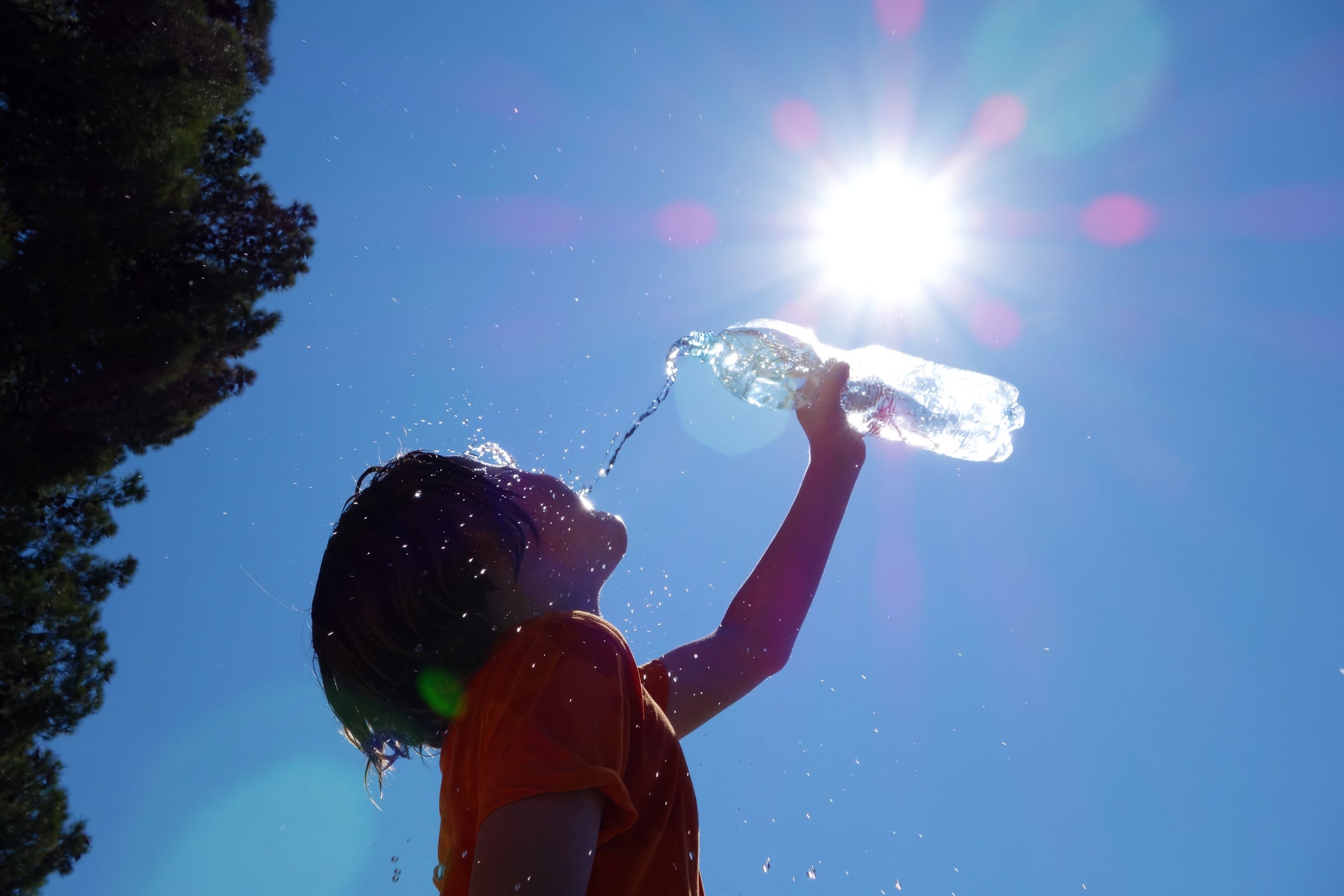
The UK is expected to see its hottest day on record today (19 July) with temperatures predicted to climb to 43C in some parts of the country.
The temperatures prompted the Met Office to issue its first red extreme warning for heat last week, and it advised people to stay indoors where possible.
People have also been advised to keep their windows closed and curtains shut to keep the heat out, and only exercise in an air conditioned gym where possible.
There are also concerns that the heatwave could result in severe dehydration and heatstroke for some people, which could potentially be fatal.
The best way to combat both is to make sure you are kept well hydrated and as cool as possible.
How much water should you drink per day when it’s hot outside?
Parvinder Sagoo, lead pharmacist and health adviser for Simply Meds Online, says it’s important that you drink more water than normal when it’s hot as your body is losing liquids at a higher rate.
“Your body is losing liquids through sweat and perspiration and water can replace these vital liquids,” he tells The Independent.
“You are more likely to be dehydrated when it’s hot, so drinking water in hot and humid weather should help to counteract dehydration. Drinking water also helps to lower body temperature.”

GP Dr Angela Rai adds that we should be drinking up to three litres of water per day during a heatwave.
“It is recommended to drink around eight glasses of water per day which equals around 1.5-2 litres per day,” she says.
“However, in hot weather and especially if we are exercising, our water requirements will go up. We need to drink up to around three litres a day on a hot day, however, it is important to space this out throughout the day and not to drink excessive amounts all at once.”
What are the signs of dehydration?
According to the NHS, the most common signs of dehydration include:
- Feeling thirsty
- Dark yellow and strong-smelling pee
- Feeling dizzy or lightheaded
- Feeling tired
- A dry mouth, lips and eyes
- Peeing little, and fewer than four times a day
To reduce the risk of dehydration the health service recommends drinking water regularly and when you feel any of the above symptoms.
What are the signs of heatstroke?
Heatstroke should be treated as an emergency, so if you see any signs, you should call 999.
The signs of heatstroke include:
- Fast breathing or shortness of breath
- A fit (seizure)
- Loss of consciousness
- Not responsive
Heatstroke is different to heat exhaustion, which the NHS says is not usually serious if you are able to cool down within half an hour.
The signs of heat exhaustion include:
- A headache
- Dizziness and confusion
- Loss of appetite and feeling sick
- Excessive sweating and clammy skin
- Cramps in the arms, legs and stomach
- Fast breathing or pulse
- A high temperature of 38C or above
- Being very thirsty
Children can also become floppy and sleepy. Children and older people are more prone to dehydration and heat exhaustion as they are less able to regulate their body heat or look after themselves.
If someone shows signs of heat exhaustion, they need to be cooled down immediately either by cold water or an ice pack.







